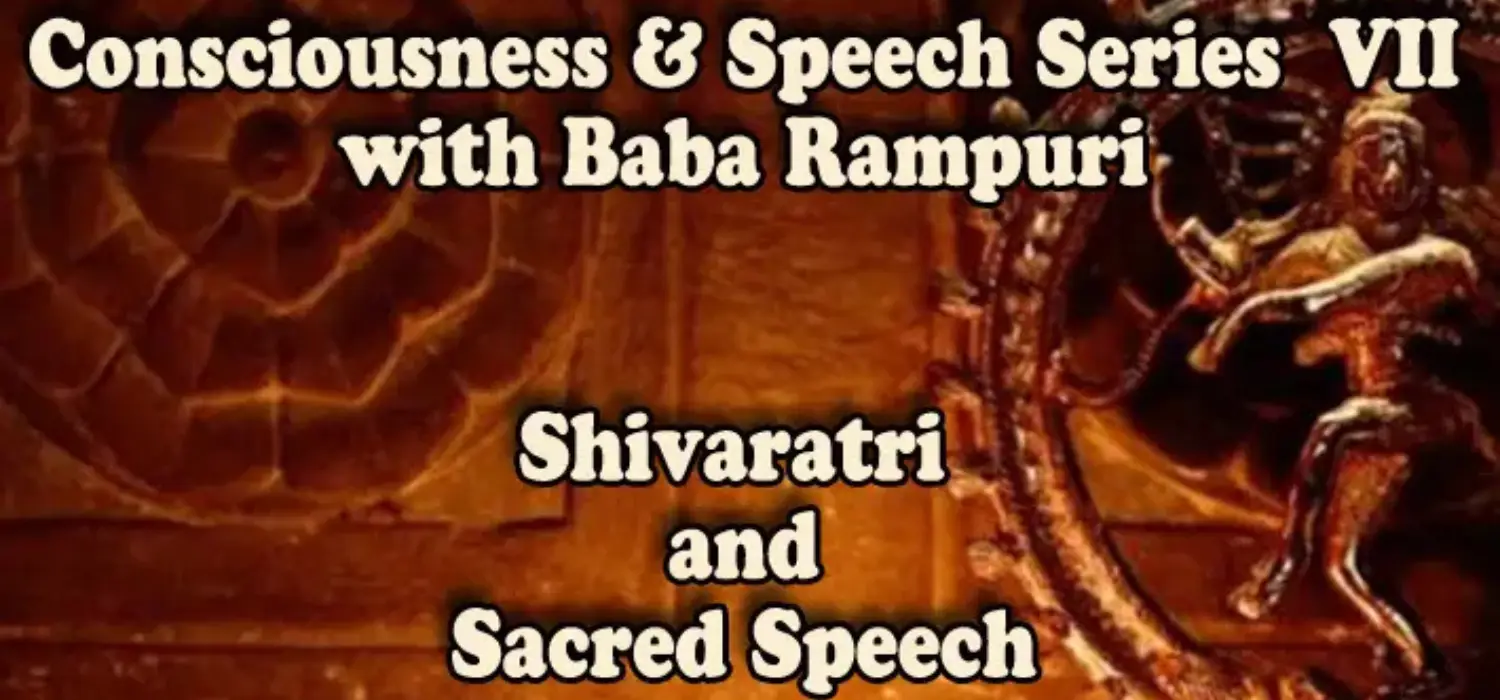
Shiva – His Drum of Consciousness, part 5
Sacred Speech Masterclass episode VII
part 5 of 6 parts
hosted by Baba Rampuri
![]()
Shiva’s Damaru
This is one of the powerful collections of syllables I think on the planet and certainly without the revelation of this collection of syllables to Panini it would have required a whole different thing to happen to eventually create a computer revolution.
![]()

![]()
I will go over the Mahesvara Sutra, and I will pronounce it very slowly and so that you can perhaps hear the individual syllables that are contained in these 14 sutras.
I know this must be incredibly, incredibly esoteric. It is esoteric for everyone. This is one of the powerful collections of syllables I think on the planet and certainly without the revelation of this collection of syllables to Panini it would have required a whole different thing to happen to eventually create a computer revolution.
Hari: Are they organized based on the different vargas. Or what’s the kind of structure that is going on in this?
Babaji: Well, you see, what is curious is that the system, the, and when I use this word System, I mean, I am using not just as a cap, no small “s” system, but System in the sense that the Europeans discovered system, I don’t think any earlier than the 19th Century. At least in terms of speech. This System is really “a” “i” “u”. The system is really ka kha ga gha ṅ cha chha ja jha ñ ṭa ṭha ḍa ḍha ṇ ta tha da dha na pa pha ba bha ma ya ra la va ṡa ṣa sa ha. This is the system. Oh, I think this is telling us that maybe we are over, but, ok, let’s see if we can go on for a minute or two.
Hari: I am curious about the Shiva Sutra. But it sounds like there is a lot there….
Babaji: What you’re going to find if you really sort of explore they way that people have worked with speech, people who have something to say, have an application, with this, that there are a number of different ways that the basic system is twisted and turned to be used. And this constitutes the nature of a great deal of esoteric study. It’s not a simple one to one replacement.
Hari: Question regarding the last class if I might.
Babaji: Yeh. Please.
Hari: In the story about your Guru who listed the, in tracing back the birth date of the Ashtadhyayi the original dating of his, yeh, when he did that is that something that he had memorized or is that something he kind of tapped into you know universal records and
Babaji: akashic records?
Hari: Yeh. akashic records and he downloaded on the fly.
Babaji: Well, that’s a very interesting question actually. I think that it really is a sort of combination of the two. That it’s not completely memorization. But there’s a lot of it. A lot of Sanskrit and especially important articulations in Sanskrit are composed in such a way where there are mnemonic devices installed in them, such as, instead of memorizing someone’s speech you were to have to memorize a poem, that had a consistent meter and had a rhyme at the end of every line, you would probably find it easier to memorize poem than somebody’s speech. And you would have ways of testing yourself to make sure that you had memorized it accurately. I mean, for example, if you repeat it, and it doesn’t rhyme, then you know that something is wrong–that if you memorize somebody’s speech and repeated it, you wouldn’t have, you know, a built-in tool to determine its accuracy. So, mnemonic devices are very much a part of Indian languages and especially when they become more esoteric. So in an analogical sense I would say, “Yes, he’s pulling from the sky.” I mean, this is the way that I see it. What he’s pulling from is a common pool. There’s sort of a common pool of consciousness that partly is reached by memorization and this kind of discipline, but it sort of exists outside of the individual as well. So if that individual forgets it, or dies, or something like that, this common pool is still in existence, and still accessible.